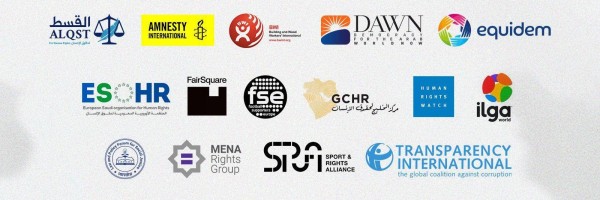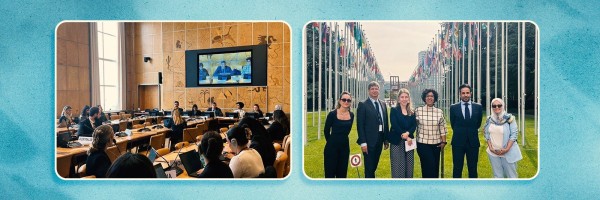A group of Saudi nationals living abroad, including ALQST’s Head of Monitoring and Advocacy, Lina Alhathloul, as well as Abdullah Alaoudh, Khalid Aljabri, Nasser al-Qarni and Fouz al-Otaibi, have written to the Saudi Human Rights Commission (HRC) seeking the lifting of travel bans currently being applied to their relatives in Saudi Arabia. The restrictions have been imposed without notification of any legal justification, judicial ruling or official decision. Previous efforts by the activists to engage with the HRC have so far not received any response.
Travel bans have a serious impact on the lives of both the individuals directly affected and their friends and families. In recent years the Saudi authorities have made repeated and increasing use of arbitrary travel bans of family members of activists as a form of reprisal and collective punishment, and to deter individuals from engaging in human rights work for the sake not just of their own safety but also that of their relatives. The activists’ family members only learned of the restrictions placed on them when attempting to leave the kingdom either by air or by crossing land borders. None of the family members concerned has been accused of or charged with any wrongdoing, and their lack of a criminal record confirms that these travel bans have been arbitrarily imposed.
In their letter, the activists also point out that their relatives have no means of recourse: since these bans are unofficial and do not have any legal basis, there is no way to formally appeal them. Meanwhile, they are unable to pursue their personal goals and visit family members abroad, which has had a profound impact on the mental health and emotional well-being of both the activists in the diaspora and their families in Saudi Arabia.
The Universal Declaration of Human Rights states that every person has the right to freedom of movement and residence within the borders of each state, and the right to leave any country, including their own, and to return to it (Article 13). The Arab Charter on Human Rights, which Saudi Arabia has ratified, states even more explicitly that “citizens shall not be arbitrarily or illegally deprived from leaving any Arab country, including their own” (Article 21).
The kingdom’s own legislation upholds this right: Article 6, para. 2 of the Travel Document Law states that no person may be barred from travelling except by a judicial ruling or a decision issued by the Minister of Interior or the President of State Security, for specific security-related reasons and for a specific period of time. Such measures are normally taken in cases relating to financial crimes, child custody, or ongoing criminal investigations. The Law adds that individuals prohibited from travelling are to be notified within one week of the ruling or decision being issued.
Since the Saudi authorities are neither meeting their international obligations in this matter nor following their own laws, the activists have now appealed to the Saudi HRC for help.
ALQST’s Executive Director, Julia Legner, comments: “It is high time the HRC, as Saudi Arabia’s self-proclaimed National Human Rights Institution, took up the complaints raised by these families. It should promptly investigate the circumstances surrounding these unjust and arbitrary travel bans imposed on relatives of Saudi activists and peaceful dissidents living abroad, and urge the authorities to immediately and unconditionally lift them.”
ALQST therefore calls on the Saudi authorities to immediately lift the unofficial travel bans imposed on the family members of Lina Alhathloul, Abdullah Alaoudh, Khalid Aljabri, Nasser al-Qarni and Fouz al-Otaibi and respect their right to freedom of movement. ALQST also urges the Saudi authorities to end the illegal practice of issuing unofficial travel bans on peaceful dissidents, rights advocates and their family members as a form of reprisal for their human rights work.




